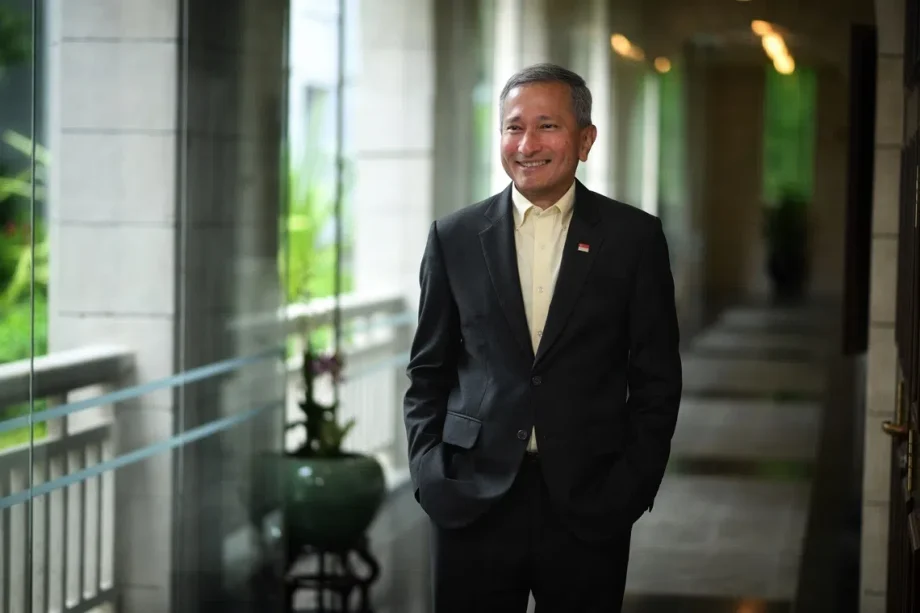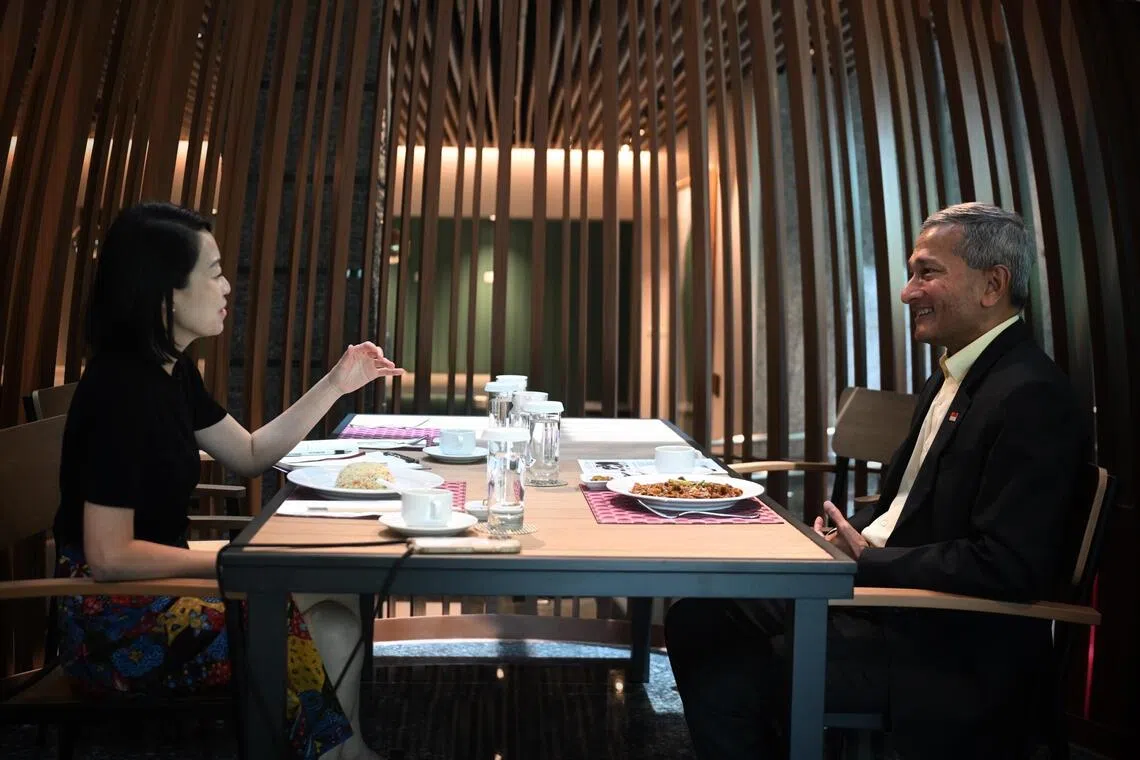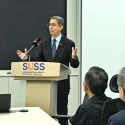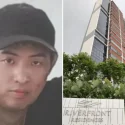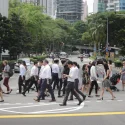SINGAPORE – Of late, Singapore’s Foreign Minister has been directing much of his diplomatic energies to a different audience – those at home.
While his main focus is to represent the Republic’s interests abroad, Dr Vivian Balakrishnan has also spent “hundreds of sessions” – he’s lost count – explaining Singapore’s foreign policy to Singaporeans. In the House, more MPs are rising to query his ministry’s policies, whether during the annual Budget debate or the delivery of ministerial statements.
“In the past, I would have had very few questions in Parliament,” says Dr Balakrishnan. “(But) today, yesterday, or the last month, you can be on the front lines in Parliament, which means foreign policy now has domestic salience.”
It reflects how a certain emphasis in his work has, perhaps counterintuitively, shifted over the past decade. As the world becomes a more troubled one, “a lot of our diplomacy is focused domestically”.
“Because of our multiracial, multi-religious make-up, the truth is, when crises or conflicts break out in the world, it is very easy for us to view them through different lenses. And it is important that we achieve internal alignment, whilst recognising that different groups will feel more or less strongly about wars and conflicts elsewhere.”
And crises and wars and conflicts there have been aplenty in his time as Singapore’s top diplomat.
On Oct 1, Dr Balakrishnan marked 10 years in the role. That makes him one of Singapore’s longest-serving foreign ministers, alongside Professor S. Jayakumar, who similarly helmed the portfolio for a decade, from 1994 to 2004. Old Guard leader S. Rajaratnam left his indelible imprint, steering the young nation’s external relations from independence to 1980.
In an hour-plus interview with The Straits Times at the ministry building, Dr Balakrishnan calls his tenure “an honour and a privilege”. It is also hectic. And one gets the feeling that the former eye doctor and university debating champion, who also spent time in ministries such as Environment and Water Resources, and Community Development, Youth and Sports, is fully in his element.
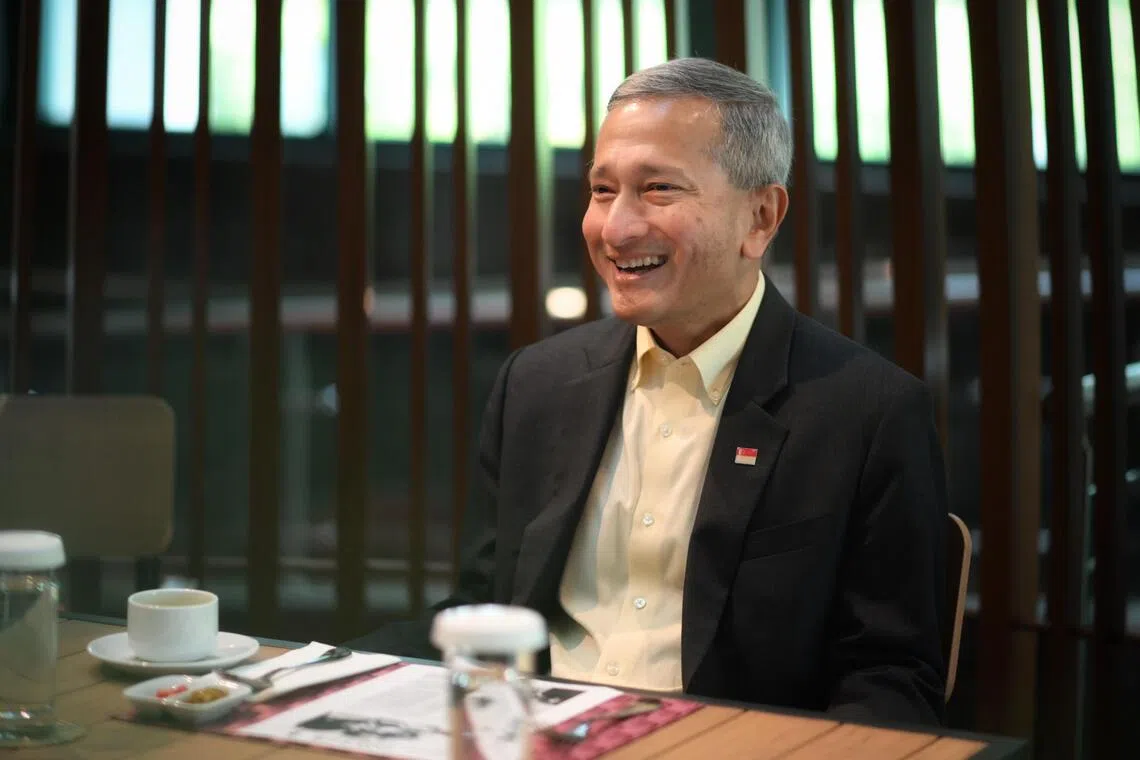
Foreign Minister Vivian Balakrishnan marked 10 years in the role on Oct 1.
ST PHOTO: CHONG JUN LIANG
The day before we met, the 64-year-old was deftly handling a flurry of questions in Parliament about the
latest development in Gaza
– US President Donald Trump’s 20-point peace plan – and Singapore’s take on it.
The Oct 7, 2023, attack by Hamas and Israel’s retaliation resulting in the ravages of Gaza have become one of the most heated issues in Singapore today, passionately debated by many across ethnic, religious and age groups. This includes those who want the Government to take a stronger stance against Israel’s military operations, and to recognise Palestinian statehood now.
Singapore’s longstanding position is that it supports a negotiated two-state solution. Since the war broke out, it has made a slight, but distinct shift – it is
prepared to recognise the Palestinian state
when there is an effective government that renounces terrorism and also recognises the right of Israel to exist. Meanwhile, it is stepping up humanitarian aid as overland routes into Gaza open.
Meeting Singaporeans and staying “grounded” as foreign minister – as Dr Balakrishnan puts it – is not just for the benefit of explaining the Government’s views.
On whether it has taken on board domestic sentiments in formulating foreign policy, and if this is happening more in recent years, he says: “The answer is yes, and yes. The most recent and current example, obviously, is the problem in Gaza; it is a horrible tragedy. There’s no euphemism.”
The Republic’s position on the conflict takes its soundings from three national interests: maintaining unity, protecting its security, and abiding by international law.
Dr Balakrishnan reiterates the need for Singapore to protect the space it has to respond should it ever come under an attack similar to that of Oct 7. “We’re not here to defend the Israelis, and we’re certainly not here to defend Hamas and the killing of civilians and the taking of hostages because that could happen to us. And when that happens, we will certainly respond. We will assert the right of self-defence.”
As for whether Israel’s actions amount to “genocide” – a position that some countries and the United Nations’ Independent International Commission of Inquiry have taken – the minister responds, in reference to the matter being brought before the International Court of Justice: “That’s for the court to decide.”
He acknowledges that there are Singaporeans who want Singapore to go further and faster. “For instance, people say, cut ties with Israel.
“Will that help me deliver more assistance? I think it will make it much harder.”
It is such performative actions that Singapore eschews, in line with what Dr Balakrishnan describes as a key principle of its foreign policy – “to always have a very hard-nosed, realistic view of the world; that we are small, we are vulnerable”.

